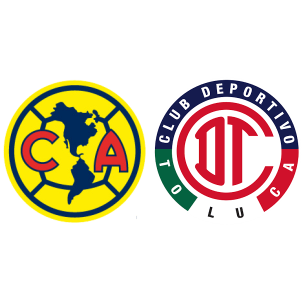CRYPTO
What Is Cryptocurrency and What Is It Used For?

A cryptocurrency is a form of digital currency that can be used to make payments online. It is also a way for people to store value without relying on traditional banks or governments.
Cryptocurrencies run on a technology called blockchain, which makes them decentralized. This means that transactions are recorded across a network of computers and are tamper-proof.
Form of digital currency
A cryptocurrency is a form of digital currency that does not have any legal or legitimate value. The technology that underpins it is called blockchain and the currencies are created by a process known as mining.
Cryptocurrencies are not issued by governments or banks, and they are managed by peer-to-peer networks of computers using free, open-source software. Users can purchase cryptocurrencies from brokers, and they can store and spend them through an encrypted wallet.
These cryptocurrencies are based on different technologies or have new features that allow them to do more than transfer value. The most popular ones include Bitcoin, Ethereum, and Litecoin.
Most cryptocurrencies run on a distributed public ledger called blockchain, which stores all transactions and holds them in a secure, safe manner. This makes cryptocurrencies extremely hard to counterfeit and impossible for central banks to manipulate.
Finally, cryptocurrencies can be used to purchase property in virtual gaming worlds such as Decentraland. These are the first virtual worlds that are entirely owned by their users. The value of a cryptocurrency is usually determined by its supply and demand. The demand for a cryptocurrency is what drives its price, just like the demand for any other good or service.
Form of investment
Cryptocurrency is a digital currency that operates outside of traditional financial systems. Its decentralized architecture and technology create a new, more efficient paradigm for money, one that eliminates the need for centralized intermediaries such as banks to enforce trust and police transactions.
Many people use cryptocurrency to purchase goods and services, but others may choose it as a form of investment. For those who are particularly interested, it can be a good way to diversify your portfolio and add some volatility, but it is also a risky proposition.
The most important thing to know about cryptocurrencies is that they are not backed by a government or central bank, so their value is unpredictable and can be volatile. This is a major concern for investors who want to protect their savings.
There are a variety of different cryptocurrencies, but the most popular ones include Bitcoin, Ethereum and Litecoin. Each of these is a little different, but all are based on the same technology called the blockchain.
To make a transaction in any of these currencies, you need to have a “key” that allows you to write your purchase or sale in the public ledger. This key is tied to your identity, but it does not necessarily bind you to the person or company you’re making the purchase with.
Buying or selling these coins is not instantaneous, and you may need to wait for the exchange to validate the transaction. If you’re not careful, you could end up with a counterfeit coin, or you may lose out on a lot of money in the process.
It’s also worth noting that a number of cryptocurrencies, such as the popular cryptocurrency Bitcoin, have skyrocketed in value over the years. This has made them a valuable asset for some investors, but for others, it has been a losing proposition.
Form of payment
A cryptocurrency is a form of digital currency that allows users to transfer value from one party to another without the need for a central authority like a bank. It uses a network of computers that are running free, open-source software to manage the transactions in the system. The most famous cryptocurrency is Bitcoin, but there are many other cryptocurrencies out there with different features and technologies.
Most cryptocurrencies have no legal tender or intrinsic value; they are simply worth what people are willing to pay for them in the market. This is in contrast to national currencies that get some of their value from being legislated as legal tender.
Some people use cryptocurrencies as a store of value or as a way to participate in software programs that require them. Other people buy and sell cryptocurrencies as a means of speculation. These speculators drive the prices of these coins back and forth, hoping to make a profit.
Despite their popularity, cryptocurrencies are not widely accepted as a form of payment for most consumers. However, surveys show that a small percentage of cryptocurrency holders use them regularly to make purchases.
Cryptocurrencies also offer a decentralized paradigm for money, which eliminates the need for centralized intermediaries, such as banks and monetary institutions, to enforce trust and police transactions between parties. This eliminates the risk of a single point of failure that could trigger a cascade of financial crises around the world, as was the case with banks in 2008.
Store of value
A cryptocurrency is a form of digital currency that is used to buy goods and services. There are many different types of cryptocurrencies, including Bitcoin, Litecoin, Ethereum, and more. Some are designed to be units of exchange for goods and services, while others are a store of value.
A cryptocurrency is a form of digital money that is independent of banks and governmental institutions. It can be exchanged for other digital currencies on the open market.
The main component of a cryptocurrency is the blockchain, which is a distributed database that keeps track of all transactions. It is designed to be secure and tamper-proof, and it can only be altered under certain conditions.
It is important to remember that not all cryptocurrencies are created equal. Some are specifically designed as payment tools, such as Bitcoin, while others are intended to be a storage of value, such as Ethereum.
CRYPTO
Crypto30x.com Zeus: The Ultimate AI-Powered Trading Bot for Smarter Cryptocurrency Investments

Crypto30x.com Zeus is an advanced AI-powered cryptocurrency trading platform that automates the trading process. It allows users to trade efficiently without constantly monitoring the market.
The platform is designed to help both beginners and experienced traders optimize their investments. By using automation, it removes emotional decision-making and executes trades with precision.
Artificial intelligence and machine learning play a crucial role in analyzing market patterns. Crypto30x.com Zeus scans historical data, real-time market trends, and trading volumes to make data-driven decisions.
As cryptocurrency markets operate 24/7, manual traders often struggle to keep up. With automated systems like crypto30x.com zeus, users can trade continuously without missing opportunities.
Crypto30x.com Zeus: The Future of AI-Powered Crypto Trading
Crypto30x.com Zeus is a cutting-edge AI-driven cryptocurrency trading platform designed to automate trading and maximize efficiency. It helps traders execute profitable trades without the need for constant market monitoring. By leveraging machine learning and real-time data analysis, the platform predicts market trends and makes split-second decisions that human traders might miss.
One of the standout features of crypto30x.com zeus is its intelligent risk management system. It includes stop-loss, take-profit orders, and customizable strategies, allowing traders to control their risk levels. The platform operates 24/7, ensuring no trading opportunity is missed. Whether you’re a beginner looking for hands-off trading or an expert aiming to refine your strategies, crypto30x.com zeus offers an innovative solution for smarter, more efficient crypto trading.
How Crypto30x.com Zeus Works
Crypto30x.com Zeus operates on an AI-driven algorithm that continuously analyzes market fluctuations. The platform executes trades based on set conditions, eliminating the need for human intervention.
It gathers real-time market data from multiple sources and identifies profitable opportunities. The AI adjusts strategies dynamically to maximize potential gains.
The trading system follows a structured “Buy Low, Sell High” approach. However, it also incorporates risk management features like stop-loss orders to minimize losses in unpredictable markets.
One of its key advantages is the speed of trade execution. AI reacts instantly to market conditions, reducing delays that manual traders often face.
Key Features of Crypto30x.com Zeus:
- Automated trading with AI-driven strategies
- Live market monitoring for real-time decision-making
- Stop-loss & take-profit orders for risk control
- Customizable trading settings for different risk appetites
Key Features of Crypto30x.com Zeus
Crypto30x.com Zeus offers multiple trading tools that help users execute strategies efficiently. These tools ensure automation, accuracy, and better trade execution.
The platform includes AI-powered bots that operate on pre-defined algorithms. Users can set parameters to let the system trade on their behalf, even while they sleep.
A real-time market scanner tracks price fluctuations, identifying high-potential buy and sell points. This ensures traders stay ahead of sudden market shifts.
Another crucial feature is risk management. The system implements stop-loss and take-profit features to protect investments and avoid excessive losses.
| Feature | Crypto30x.com Zeus | Traditional Trading |
| Automated AI Trading | Yes | No |
| 24/7 Market Monitoring | Yes | No |
| Customizable Strategies | Yes | Limited |
| Risk Management Tools | Yes | Basic |
| Fast Execution Speed | Yes | Slower |
Benefits of Using Crypto30x.com Zeus
Using crypto30x.com zeus offers several advantages over manual trading. One of the biggest benefits is time efficiency—traders no longer need to monitor charts all day.
AI-driven trading ensures emotion-free decision-making. Fear and greed often lead to poor trading choices, but automation removes these psychological factors.
Speed is another significant benefit. Since crypto markets are highly volatile, fast execution of trades can mean the difference between profit and loss.
The platform is user-friendly, making it accessible for both beginners and advanced traders. Users can customize their strategies, adjusting settings based on their risk tolerance.
Potential Risks & Considerations
Although crypto30x.com zeus provides automation, no system can guarantee profits due to the volatility of cryptocurrency markets. AI can predict trends but is not immune to sudden market crashes.
New users might face a learning curve when setting up their trading strategies. While automation simplifies trading, understanding the platform’s settings is essential.
There is always a risk of technical failures. A system glitch or internet disruption could lead to missed trades, impacting potential profits.
Over-reliance on AI can be risky. Traders should regularly review performance reports to adjust strategies and optimize results.
Key Considerations Before Using Crypto30x.com Zeus:
- Cryptocurrency markets remain unpredictable
- AI-based trading requires initial setup & strategy testing
- No platform can fully eliminate risks
How to Get Started with Crypto30x.com Zeus
To begin using crypto30x.com zeus, traders must first sign up on the platform and complete a simple registration process. KYC verification is required for security purposes.
After signing up, users deposit funds into their accounts. The platform supports multiple cryptocurrencies, allowing flexible funding options.
The next step is to customize trading preferences. Users can set risk levels, trade size, and preferred trading pairs before activating the AI trading bot.
Once everything is set up, traders can enable automated trading. The system will start executing trades based on the chosen strategy, allowing users to monitor performance.
User Experiences & Success Stories
Many traders have successfully used crypto30x.com zeus to optimize their investments. The platform has helped both beginners and experienced traders manage risk effectively.
For instance, a new trader who struggled with manual trading saw consistent profits after switching to AI-based strategies. Automation helped eliminate human errors and impulsive trading.
Another experienced investor used crypto30x.com zeus to enhance his portfolio by diversifying across different cryptocurrencies. AI’s market analysis provided insights that manual research would have missed.
A frequent issue among traders is panic selling. Automated trading helped a user avoid emotional decisions by sticking to a pre-planned strategy, resulting in steady growth over time.
Is Crypto30x.com Zeus Worth It?
Crypto30x.com Zeus is an excellent choice for traders looking to automate their strategies while maintaining control over risk management. Its AI-driven tools improve accuracy and execution speed.
The platform is particularly useful for busy traders who cannot monitor the market 24/7. It ensures they don’t miss out on profitable opportunities due to time constraints.
While AI trading offers efficiency, users should stay informed about market trends. Regularly checking trade reports and adjusting settings can improve long-term profitability.
Overall, crypto30x.com zeus provides a powerful solution for automated trading, but like any investment tool, it requires proper strategy and risk management.
Final Thoughts
Crypto30x.com Zeus is a powerful AI trading tool designed for efficiency and accuracy. By automating trades, it allows users to capitalize on market trends without constant monitoring.
While the platform provides numerous benefits, users should always remember that cryptocurrency trading carries risks. Learning and adjusting strategies is key to long-term success.
For traders looking for a smart and automated way to engage in crypto trading, crypto30x.com zeus is a solid option worth considering.
FAQs
How does Crypto30x.com Zeus make trading easier?
Crypto30x.com Zeus automates trading using AI, analyzing market trends and executing trades instantly without manual intervention.
Can I customize my trading strategies on Crypto30x.com Zeus?
Yes, users can set risk levels, trade size, and preferred strategies to match their investment goals.
Does Crypto30x.com Zeus guarantee profits?
No, while AI enhances trading efficiency, cryptocurrency markets remain volatile, and profits are not guaranteed.
Is Crypto30x.com Zeus safe from hacking risks?
The platform uses encryption, secure servers, and two-factor authentication to protect user accounts and funds.
Can I withdraw my funds anytime from Crypto30x.com Zeus?
Yes, withdrawals are allowed at any time, subject to the platform’s policies and processing times.
CRYPTO
Crypto30x.com Bitcoin: A Complete Guide to Secure and Profitable Crypto Trading

Crypto30x.com is an online platform designed for cryptocurrency enthusiasts, traders, and investors. It provides real-time market insights, secure trading features, and educational resources for Bitcoin and other digital assets.
Bitcoin is the world’s first decentralized cryptocurrency, created in 2009 by an anonymous figure known as Satoshi Nakamoto. It operates on blockchain technology, allowing peer-to-peer transactions without central control.
Many investors see Bitcoin as digital gold because of its limited supply of 21 million coins. Its value has increased significantly over time, making it a popular investment option.
Crypto30x.com Bitcoin trading helps users track price movements, analyze trends, and make informed trading decisions. Whether you are a beginner or an expert, the platform offers tools to maximize your trading potential.
What is Crypto30x.com?
Crypto30x.com is a cryptocurrency trading and market analysis platform. It provides real-time data, expert insights, and secure transaction features, making it a valuable tool for Bitcoin traders.
One of the main advantages of the platform is its user-friendly interface. Even beginners can easily navigate through Bitcoin price charts, news updates, and trading signals.
The website also offers educational content, including tutorials on blockchain technology, crypto security, and investment strategies. This helps traders make well-informed decisions.
For those looking to trade Bitcoin, Crypto30x.com provides advanced tools, including technical indicators, automated trading bots, and in-depth market analysis reports.
Crypto30x.com Bitcoin – A Secure and Smart Trading Platform

Crypto30x.com Bitcoin trading provides users with a safe, efficient, and data-driven platform for buying, selling, and analyzing Bitcoin. The platform offers real-time market updates, advanced trading tools, and expert insights, making it easier for both beginners and experienced traders to navigate the cryptocurrency market. With secure transactions and user-friendly features, Crypto30x.com ensures that traders can make informed decisions based on accurate data.
One of the key advantages of Crypto30x.com is its focus on security and market accuracy. The platform uses two-factor authentication, encryption, and cold storage to protect user funds, reducing the risk of hacking and fraud. Additionally, traders can access technical analysis tools, live price charts, and automated trading options, helping them execute profitable strategies. Whether you are holding Bitcoin for the long term or engaging in active trading, Crypto30x.com Bitcoin services provide the necessary tools for success in the crypto market.
Understanding Bitcoin and Its Role in Crypto30x.com
Bitcoin is a decentralized digital currency that allows people to send and receive payments without intermediaries. It operates through a secure and transparent blockchain network.
The role of Bitcoin in the financial world has grown over the years. Many businesses now accept Bitcoin as a payment method, and some countries have even recognized it as legal tender.
At Crypto30x.com, Bitcoin is the most frequently traded asset. The platform allows users to monitor Bitcoin’s real-time price movements, historical trends, and market predictions.
Due to Bitcoin’s high volatility, traders use Crypto30x.com to execute buying and selling strategies based on accurate market analysis. The platform’s tools help traders take advantage of price fluctuations.
Key Features of Crypto30x.com for Bitcoin Users
Live Market Data and Trading Tools
Crypto30x.com provides real-time Bitcoin price charts with detailed analysis. Users can view historical price movements and track current market trends.
Technical indicators such as moving averages, RSI, and MACD help traders predict Bitcoin’s price direction. These tools assist in making well-timed trading decisions.
Security and Transaction Protection
The platform ensures secure Bitcoin transactions with encryption technology and two-factor authentication (2FA). This helps prevent unauthorized access.
Crypto30x.com also uses cold storage to keep a majority of funds offline, reducing the risk of cyberattacks.
Educational and Learning Resources
For beginners, the website offers free tutorials and expert insights. These resources explain Bitcoin basics, market trends, and risk management strategies.
Professional traders can benefit from in-depth research reports and advanced trading strategies provided by the platform.
How to Use Crypto30x.com for Bitcoin Trading
Step-by-Step Guide to Start Trading
- Sign Up – Create an account on Crypto30x.com and complete identity verification.
- Secure Your Account – Enable two-factor authentication (2FA) for extra security.
- Fund Your Wallet – Deposit Bitcoin or fiat currency to start trading.
- Use Market Tools – Analyze Bitcoin price charts and market trends before making trades.
- Buy or Sell Bitcoin – Execute trades based on your analysis and market conditions.
Table: Bitcoin Trading Strategies on Crypto30x.com
| Strategy | Description | Best For |
| HODLing | Holding Bitcoin for the long term | Long-term investors |
| Day Trading | Buying and selling within a day | Active traders |
| Swing Trading | Trading based on market trends | Short-term traders |
| Scalping | Profiting from small price moves | Experienced traders |
Traders can use Crypto30x.com’s real-time data and analysis tools to improve their trading performance. The platform helps them minimize risks and maximize profits.
Benefits of Using Crypto30x.com for Bitcoin
One of the biggest advantages of Crypto30x.com Bitcoin trading is the availability of real-time market insights. Users get instant access to price updates, allowing them to make quick decisions.
The platform also offers a seamless trading experience. With an intuitive interface, even beginners can start trading Bitcoin without much difficulty.
Security is a major concern in cryptocurrency trading. Crypto30x.com uses advanced security features such as two-factor authentication and cold storage to protect users’ funds.
Additionally, the educational resources available on the platform make it easier for traders to understand market trends and improve their trading strategies.
Potential Risks and How to Mitigate Them

Bitcoin is highly volatile, meaning its price can change drastically within minutes. Traders should always use stop-loss orders and risk management strategies to prevent major losses.
Scams and phishing attacks are common in the cryptocurrency world. Users must be cautious and only use trusted platforms like Crypto30x.com to trade Bitcoin securely.
Emotional trading can lead to bad decisions. Many traders panic when Bitcoin’s price drops, leading to unnecessary losses. Following a well-planned strategy is essential.
To stay safe, always research before making any investment. Crypto30x.com offers market analysis tools to help traders make informed choices and avoid impulsive decisions.
The Future of Bitcoin and Crypto30x.com
Bitcoin’s adoption continues to grow worldwide, with more businesses and governments exploring its potential. The cryptocurrency market is expected to expand further in the coming years.
Crypto30x.com is constantly updating its platform to adapt to new industry trends. The introduction of AI-driven analytics and automated trading features will enhance the user experience.
As more investors enter the crypto market, platforms like Crypto30x.com will play a crucial role in providing secure and efficient trading environments.
The future of Bitcoin looks promising, and Crypto30x.com aims to remain a leading platform for traders seeking real-time data and reliable market insights.
Pros and Cons of Crypto30x.com Bitcoin
Pros
- Real-time Bitcoin price updates and market analysis.
- Secure transactions with two-factor authentication (2FA) and cold storage.
- User-friendly interface suitable for beginners and experienced traders.
- Advanced trading tools, including technical indicators and automation.
- Educational resources like tutorials, market analysis, and crypto guides.
Cons
- High market volatility can lead to potential losses.
- Limited fiat currency deposit and withdrawal options.
- Beginners may face a learning curve with advanced trading tools.
- Trading fees apply for certain transactions and withdrawals.
- No guaranteed profits due to unpredictable market fluctuations.
Conclusion
Crypto30x.com Bitcoin trading offers a secure and efficient way for users to participate in the cryptocurrency market. The platform provides real-time data, security features, and educational resources.
Whether you are a beginner or an experienced trader, Crypto30x.com equips you with the tools needed to navigate the Bitcoin market successfully.
Security and risk management are essential when dealing with cryptocurrencies. Using trusted platforms and following trading strategies can help minimize losses and increase profits.
As the crypto industry evolves, Crypto30x.com continues to improve its services. It remains a valuable platform for those looking to invest, trade, and learn about Bitcoin.
FAQs
What is Crypto30x.com Bitcoin trading?
Crypto30x.com Bitcoin trading allows users to buy, sell, and analyze Bitcoin with real-time data, advanced tools, and secure transactions.
Is Crypto30x.com safe for Bitcoin trading?
Yes, Crypto30x.com uses two-factor authentication, encryption, and cold storage to ensure the security of user funds and transactions.
How can beginners use Crypto30x.com for Bitcoin?
Beginners can access easy-to-use trading tools, educational guides, and real-time market insights to start trading Bitcoin confidently.
Does Crypto30x.com offer automated trading features?
Yes, the platform provides automated trading options and technical analysis tools to help traders execute strategies efficiently.
Why choose Crypto30x.com for Bitcoin investment?
It offers a user-friendly interface, expert market insights, and strong security features, making Bitcoin trading safer and more profitable.
CRYPTO
Crypto30x.com Gigachad: The Ultimate AI Trading Bot for Smarter and Faster Crypto Profits

Crypto trading is evolving rapidly, and platforms like crypto30x.com gigachad are leading this transformation. The platform offers AI-driven trading automation, helping traders make faster and more informed decisions.
Gigachad is an advanced trading bot that analyzes market trends in real time. It uses artificial intelligence to execute trades, minimizing risks and maximizing potential profits. Traders no longer need to watch the market 24/7, as Gigachad does the work for them.
This technology is ideal for both beginners and experienced traders. While beginners benefit from automated strategies, professionals can customize settings to enhance their trading outcomes. The flexibility makes it a popular choice in the crypto space.
With its cutting-edge AI technology, Gigachad is changing how traders interact with the crypto market. Its ability to adapt to market conditions and execute trades efficiently makes it a game-changer.
What is Crypto30x.com?
Crypto30x.com is a crypto trading platform that provides tools for both manual and automated trading. It is designed for traders who want efficiency, security, and advanced market insights.
The platform supports a wide range of cryptocurrencies, allowing users to diversify their investments. From Bitcoin to emerging altcoins, traders can access multiple trading pairs with real-time data and analytics.
Security is a priority for crypto30x.com. The platform uses encryption and multi-layer authentication to ensure funds and personal data remain protected. Users can trade confidently without worrying about cyber threats.
Whether you are a beginner or a seasoned trader, crypto30x.com provides user-friendly tools. Automated trading, advanced charting, and AI-powered insights make it a top choice for crypto enthusiasts.
Crypto30x.com Gigachad: The Future of Automated Crypto Trading

Crypto30x.com Gigachad is an advanced AI-powered trading bot designed to revolutionize cryptocurrency trading. Unlike traditional manual trading, Gigachad uses real-time market analysis and automation to execute trades efficiently. It removes human emotions from decision-making, ensuring precise and calculated trading strategies.
This powerful tool operates 24/7, scanning the market for the best opportunities even when traders are offline. Whether you’re a beginner or an experienced investor, Gigachad helps optimize profits while minimizing risks through automated strategies, smart risk management, and AI-driven market insights. Its ability to adapt to market trends makes it a game-changer in modern crypto trading.
Understanding Gigachad: The AI Trading Bot
Gigachad is the flagship trading bot of crypto30x.com. It automates trading using AI-driven algorithms, making it easier for users to buy and sell at optimal times. The bot removes human emotions from trading, ensuring a disciplined approach.
Unlike traditional bots, Gigachad learns from market patterns. It constantly adapts to price fluctuations, helping traders minimize losses and increase profitability. Its real-time data processing gives users a competitive edge.
Gigachad supports multiple trading strategies, from day trading to long-term investments. Users can adjust settings to match their risk tolerance and financial goals.
Since the crypto market operates 24/7, Gigachad ensures traders never miss an opportunity. Even when you sleep, the bot scans the market, executes trades, and manages risks on your behalf.
Key Features of Gigachad
Gigachad comes with several powerful features that make it one of the most efficient AI trading bots available. It automates complex trading tasks, allowing traders to focus on strategy rather than execution.
Automated Trading
- Uses AI to analyze market trends and execute trades.
- Removes emotions from trading decisions.
- Works 24/7 without interruptions.
Risk Management Tools
- Stop-loss and take-profit settings to limit risks.
- Customizable risk levels for different strategies.
- AI detects suspicious market activities to avoid bad trades.
User-Friendly Interface
- Simple dashboard for beginners and pros.
- Mobile-friendly for trading on the go.
- Step-by-step guidance for easy strategy setup.
Comparison: Gigachad vs. Traditional Trading
| Feature | Gigachad (AI Trading) | Manual Trading |
| Speed | Instant execution | Slower execution |
| Risk Control | Automated risk management | Requires manual intervention |
| Availability | 24/7 Trading | Limited to user’s availability |
| Market Analysis | AI-driven insights | User analysis required |
Gigachad’s combination of automation, AI analysis, and risk management makes it a superior option for modern traders.
How Gigachad Helps Crypto Traders

For beginners, Gigachad simplifies trading by automating buy and sell decisions. Users can set basic parameters and let the AI handle the rest, reducing the learning curve.
Experienced traders benefit from custom strategies and market prediction tools. Gigachad analyzes historical data and current trends to provide insights that improve decision-making.
Investors who prefer hands-off trading can use Gigachad to passively grow their portfolios. The bot ensures investments are optimized even when traders are offline.
Since the crypto market is volatile, Gigachad helps by identifying profitable trades quickly. It reduces the stress of manual trading and increases efficiency.
Step-by-Step Guide to Using Gigachad
Getting started with crypto30x.com gigachad is simple. The platform offers a seamless onboarding process to help users start automated trading quickly.
- Create an Account – Sign up on crypto30x.com, verify your email, and set up security settings.
- Deposit Funds – Choose a preferred cryptocurrency and fund your trading account.
- Activate Gigachad – Select the AI bot and customize your trading preferences.
- Monitor Performance – Use analytics tools to track your profits and adjust strategies if needed.
With these simple steps, anyone can start trading with Gigachad and benefit from AI-powered automation.
Pros and Cons of Gigachad
Gigachad has many advantages, but it also comes with considerations that traders should be aware of.
Pros:
- Works 24/7, so you never miss an opportunity.
- Reduces human error in trading decisions.
- Supports multiple trading strategies.
- Offers automated risk management tools.
Cons:
- Requires basic trading knowledge to set up correctly.
- Some traders may prefer full manual control.
- Market fluctuations can still impact profitability.
Despite the risks, Gigachad provides a powerful automation solution that can improve trading efficiency.
Is Gigachad Safe and Legit?
Security is a top concern for crypto traders. Crypto30x.com gigachad uses advanced encryption and security measures to protect user funds.
The platform implements multi-factor authentication (MFA) to prevent unauthorized access. Gigachad also includes built-in fraud detection to identify suspicious activities.
Users can further secure their accounts by enabling withdrawal restrictions and regularly updating passwords. Taking these precautions ensures a safer trading experience.
Gigachad has received positive feedback from traders who value its automation and AI-driven insights. It continues to gain trust as one of the leading crypto trading bots available today.
Final Thoughts: Should You Use Gigachad?
Gigachad is designed for both beginners and advanced traders who want to automate crypto trading. It helps users make faster and more informed trading decisions.
The AI-powered features reduce risks and improve efficiency. However, traders should always monitor their strategies and adjust settings as needed.
For those looking for a smart, AI-driven solution, crypto30x.com gigachad is an excellent choice. It simplifies crypto trading and maximizes profitability while ensuring security and risk management.
Final Tip: Start with a small investment, test different settings, and gradually increase as you gain confidence in Gigachad’s performance.
FAQs
What is Crypto30x.com Gigachad?
Crypto30x.com Gigachad is an AI-powered trading bot that automates cryptocurrency trading, analyzes market trends, and executes trades efficiently.
Is Gigachad suitable for beginners?
Yes, Gigachad offers an easy-to-use interface with automated settings, making it beginner-friendly while also allowing advanced traders to customize strategies.
Can Gigachad guarantee profits?
No, while Gigachad optimizes trading decisions, crypto markets are volatile, and profits depend on market conditions and chosen strategies.
How secure is Crypto30x.com Gigachad?
The platform uses encryption, multi-factor authentication, and fraud detection to protect user funds and ensure secure trading.
Does Gigachad require constant monitoring?
No, it operates 24/7 independently, but users should occasionally review settings and performance to optimize their strategies.
-

 L,IFESTYLE2 years ago
L,IFESTYLE2 years agoExploring the Heart of Iowa City Downtown District
-

 TECH2 years ago
TECH2 years agoMaximizing Your Pixel 6a’s Wireless Charging Performance: Tips and Tricks
-

 SPORTS3 years ago
SPORTS3 years agoclub america vs deportivo toluca f.c. timeline
-
CRYPTO2 years ago
Features of Liquidity Providers and Differences Between Them
-

 BUSINESS2 years ago
BUSINESS2 years agoThe Evolution of the Patagonia Logo: A Look at the Brand’s Iconic Emblem
-

 TECH3 years ago
TECH3 years agoBuild Your Email Marketing Contact
-

 TECH3 years ago
TECH3 years ago6 Ways AI Will Change the Future of Marketing
-

 HEALTH7 months ago
HEALTH7 months agoProstavive Colibrim: A Natural Prostate Health Supplement









